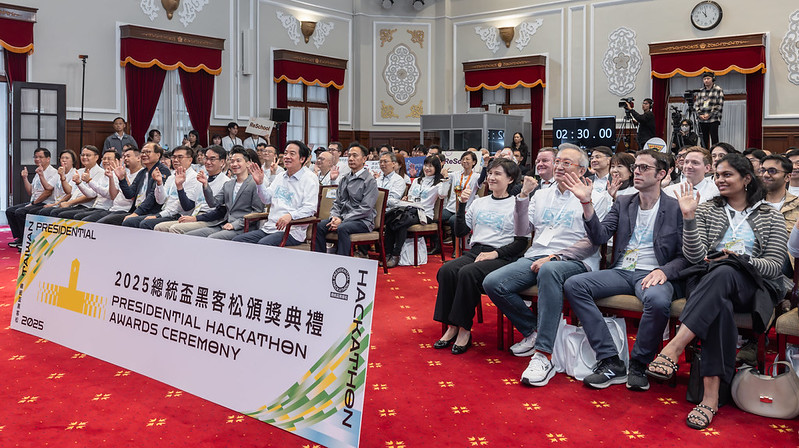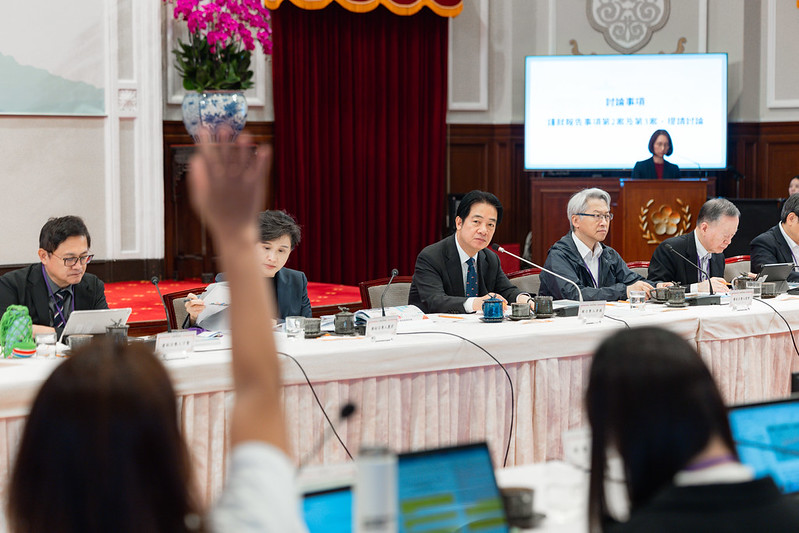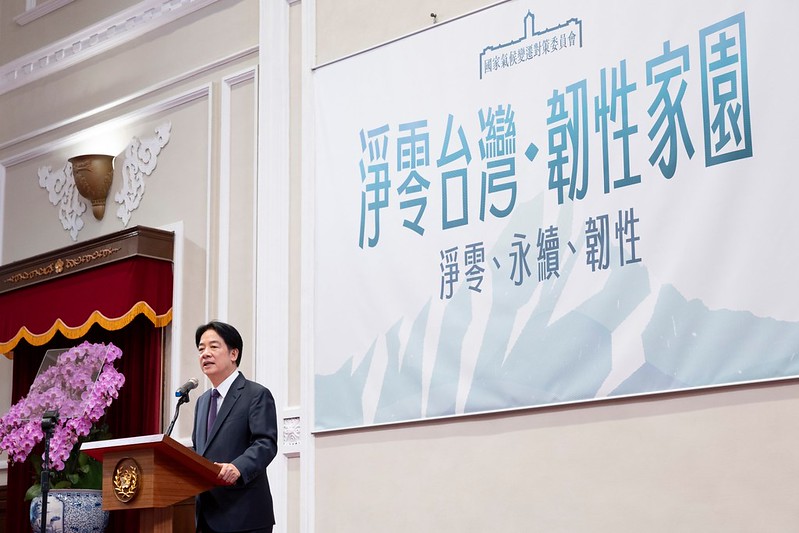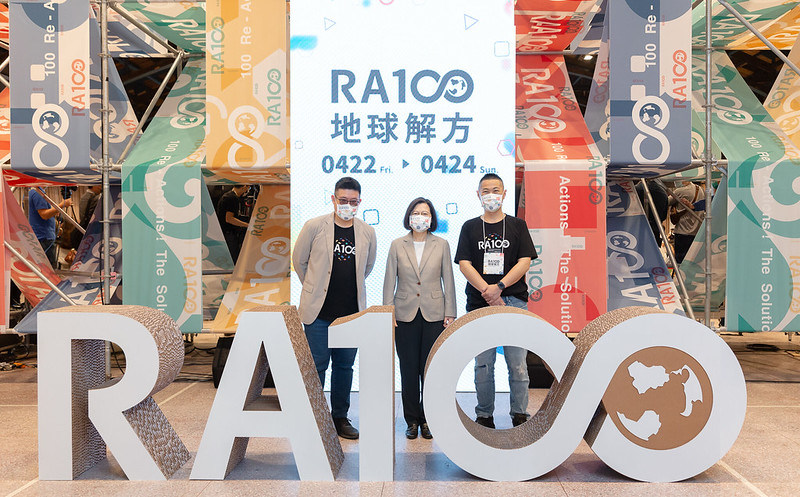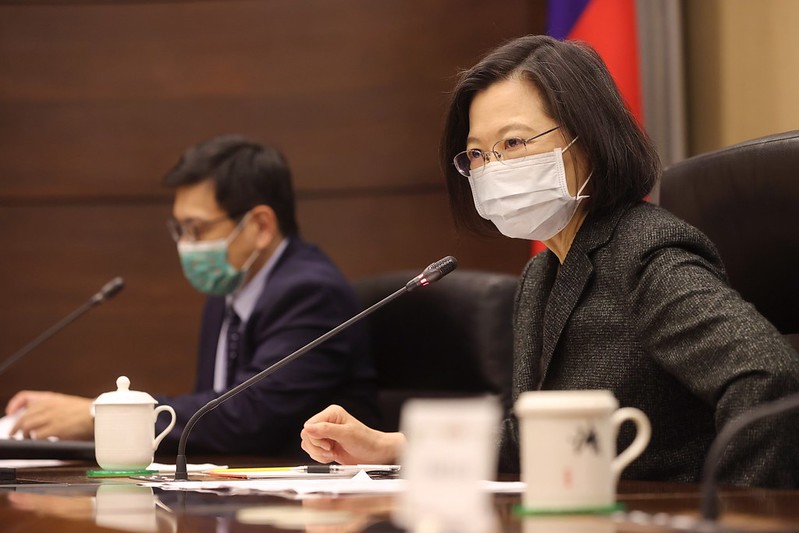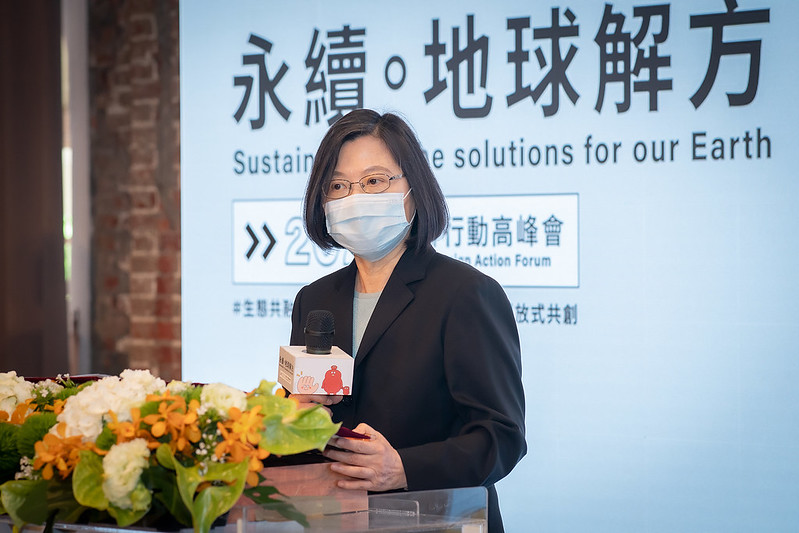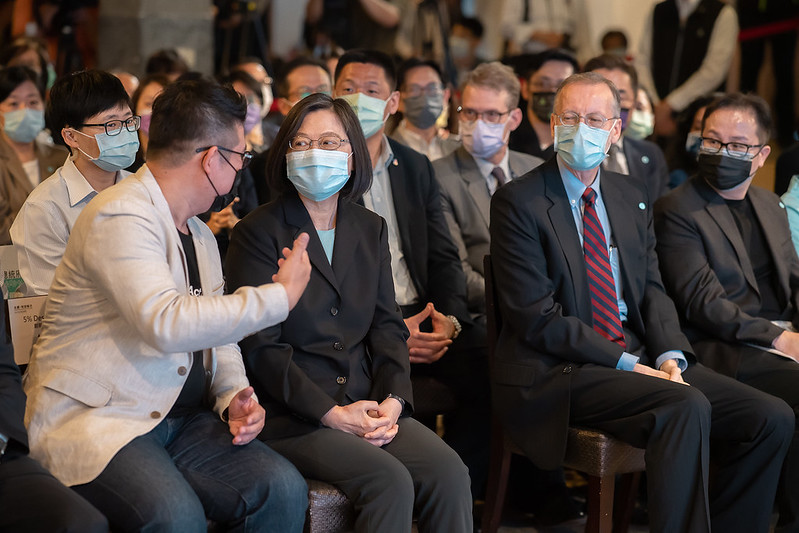News & activities
 News releases
News releases
On the morning of April 22, President Tsai Ing-wen attended the opening ceremony of the 2021 Social Design Action Forum, entitled "Sustainability—The Solutions for Our Earth." In her remarks at the event, President Tsai noted that we all have a common goal: to cut carbon emissions and slow climate change, thereby reducing the resulting impacts and giving humans and all living things a sustainable environment. At the same time, she said, carbon reduction will prompt profound economic changes. The president added that Taiwan is plotting a path to achieve net zero emissions by 2050, both via an ongoing energy transformation, and by developing systematic strategies to reduce emissions in sectors such as manufacturing, transportation, residential construction, and agriculture.
A translation of the president's remarks follows:
Today is Earth Day, a day when we come together to think about ways to promote sustainable development. We must recognize that humankind's only home, our earth, is now facing serious challenges. Taiwan is a key example of the challenges we face. Due to the effects of extreme weather, two or three years ago, we were worrying about flooding after torrential rains. And from last year until now, we have been experiencing our most severe drought in a century.
Although our proactive Forward-looking Infrastructure Development Program has strengthened our water distribution and the development of new water sources, the challenges that we face from extreme weather are still serious. We all hope that these extreme weather patterns will not become the new normal. We therefore have a responsibility to work even harder to resolve climate issues.
As everyone knows, a new international trend is emerging to respond to climate change. The European Union (EU) led the way by proposing a European Green Deal at the end of 2019, including a pledge to become carbon-neutral, which means achieving net zero emissions, by 2050. The EU is also expected to start imposing a carbon tax. In addition, in the Indo-Pacific region, Japan, Korea, and China have all come out since last year to propose target dates for reaching net zero emissions. Our key partner, the United States, is also following suit, and today, President Joe Biden will convene a climate summit. The United States will play a key role in addressing global carbon reduction.
The world is changing rapidly, and so far, over 120 countries have announced plans to achieve net zero emissions before 2050. Many multinational brands such as Apple, Google, and Microsoft have also made commitments to reach net zero emissions.
Everyone has a common goal: to cut carbon emissions and slow climate change, thereby reducing the resulting impacts and giving humans and all living things a sustainable environment. At the same time, carbon reduction will prompt profound economic changes. Whoever can take the lead in developing new technologies and creating new economic models will cement their status in a new global order.
Taiwan will not be left to chase this international trend. During my first term in office, we launched the 5+2 industrial innovation plan, as part of which we are now engaged in an all-out effort to develop green energy and a circular economy. In my New Year's address this past January, I said that we would consult widely to identify the future sustainable development methods most appropriate for Taiwan, while turning the challenges of carbon reduction into new opportunities for industrial development and job creation.
Most countries around the world are talking about achieving net zero carbon emissions by 2050, and Taiwan is actively preparing to take steps toward this goal. Under the coordination of our Executive Yuan, our government has already begun evaluating what Taiwan needs to do to reduce CO2 emissions. In addition to the ongoing transformation of our energy sector, we also need to devise systematic strategies to reduce emissions in manufacturing, transportation, residential construction, and agriculture.
Some regard these things as a challenge, but I firmly believe that many of our friends in industry see the transformation to net zero as an opportunity. Thinking must change on both the supply and demand sides of the market, so that we can seize new business opportunities and make Taiwan an even stronger competitor in global supply chains. Taiwan Semiconductor Manufacturing Company (TSMC), for example, has joined the RE100 renewable energy initiative, which promotes 100-percent reliance on green energy. And many companies have joined the Taiwan Circular Economy 100, an alliance of firms seeking to move away from the linear economy toward a circular economy. These are excellent examples of the willingness of industry to adapt to these emerging trends.
I was also very happy to see domestic media organizations, corporations, and civil society groups launch the 2021 Social Design Action Forum, held in collaboration with the American Institute in Taiwan, to expand space for international exchange focused on innovation. Kevin Yang (楊振甫), the CEO of 5% Design Action and the curator of today's event, said that "The battle for sustainability isn't one you can fight alone." The cover of the latest issue of TIME magazine clearly states: "Climate Is Everything." Putting a stop to global warming is one of the key challenges of our generation. As I said earlier, Taiwan cannot sit on the sidelines of this challenge; we must seek out opportunities to cooperate with other countries and create mutually beneficial outcomes.
In closing, I want to thank the organizers of this summit for their thoughtful arrangements, as well as the many people concerned about climate change in attendance. I wish you all success over the coming three days, as everyone pools their collective wisdom to come up with creative new solutions.
